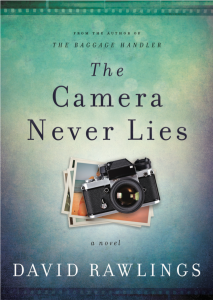by David Rawlings, @DavidJRawlings
Writing goals are great, but how do you reach them?
So 2020 has rolled around, and our social media feeds are full of writers setting out their goals for the year. One novel. Two novels. Marketing and promotion. Getting a publishing deal. Getting that pesky book finally onto the screen. For me, 2020 will be a year of writing two new novels, marketing the two novels already in the market, and launching my third – Where the Road Bends – in June.
First, let’s be real about reaching your goal. Your 100,000-word opus won’t be written by March. Even if it is, the quality may not reflect your talent. So be real about what you achieve. Or just say you hit October and your word count sits at 1,234. Your scrambling to fill a word count in the lead-up to Christmas won’t necessarily be your best work.
But while goals are great, how do you get there? Unless you have a way of reaching it, it will remain just a goal … and probably another regret for New Year’s Eve 2020. I wrote three novels inside 16 months, so here are some things I’ve learned to help you put a very satisfying tick in your 2020 box.
Be specific
Once you’ve set your goal, it helps to be specific about the milestones on the way there. Putting milestones along the way helps to remove the sense of being overwhelmed. A whole novel is a massive project – but you don’t need to think about the whole thing at once. And once you actually define the next step, your brain starts focusing on it. It’s tangible.
Just say you’re targeting 80,000 words and you’d love to get a draft written by June. Do the math: that leaves you just over 13,000 words per month. Or 3,300 words per week. Once you’ve done that, it’s a simple case of lowering your eyes and aiming for that target. (And don’t edit while you write – you’ve promised yourself a FIRST draft by June). If you get ahead of yourself because you tap into a rich vein of creativity – great! Get ahead. You might need it for those times when things dry up.
If numbers do your head in, then just write a chapter a month. Push the story along and you’ll find momentum grows.
Or say you’re writing a three-act novel. Act One needs to be done by the end of February. Act Two by April. Act Three by June 30. It all depends on how you write, but I’ve found these milestones help break down the daunting task of “writing a novel.”
Maybe it’s as simple as “by the end of February I’ll have plotted out my story, by the end of April I will have profiled my key characters.”
Be focused
If you really want to be focused, here are some must-dos for all writers:
- Switch off all other devices while you write. Facebook won’t break if you don’t check it for three hours.
- If you can’t – or don’t want to – do that, put your phone in another room. Unless you’re waiting for an emergency call, detach yourself from your phone for an hour or two.
- Turn off all notifications on the computer/laptop you’re working on. Nothing breaks your concentration like a “ping” only to find it’s more spam about making a fortune in 10 days. Or that message back from Great-Aunt Susan waving at you because she’s just figured out how Messenger works.
- Create a playlist, and play only that. I do this constantly – setting up playlists that I only listen to when I write. And these songs are tailored to the book I’m writing. My next novel – Where the Road Bends – is set in outback Australia, so my playlist included Aussie rock like Midnight Oil and the tracks from the Crocodile Dundee soundtrack. My ears hear that and I’m transported into the world of my story.
- Go somewhere inspiring and write there. For me, it’s this floor of Adelaide’s Mortlock library.
Daniel, Kelly, and Milly appear to be the perfect family. But an old camera will expose secrets no one wants developed.
Daniel Whitely is a successful marriage counselor and bestselling author, yet his own marriage is in crisis and his daughter is drifting further away each day. To make matters worse, the deadline for his second book has come and gone, and he still hasn’t written a single word.
When Daniel inherits an old camera from his grandfather, he notices an inscription on the bottom: “No matter what you think you might see, the camera never lies.”
Daniel begins using the camera, but every time he develops his photos, they threaten to reveal secrets that could sabotage both his marriage and his career—exposing him as a fraud and destroying the life he has worked so hard to build.
He’s faced with a choice: keep his secrets and save his career or come clean and possibly save his family. Which will he choose? Which would you choose?

Based in South Australia, David Rawlings is an award-winning author, and a sports-mad father-of-three with his own copywriting business who reads everything within an arm’s reach. He writes that take you deeper into life, posing questions of readers to explore their own faith and how they approach life.
His debut novel – The Baggage Handler – won the 2019 Christy Award for First Novel. His second novel – The Camera Never Lies – focuses on honesty in relationships and is now available.
He is currently signed with Thomas Nelson and represented by The Steve Laube Agency.


